Don't let Portlandia ruin Portland
There's more to the Rose City than putting a bird on it
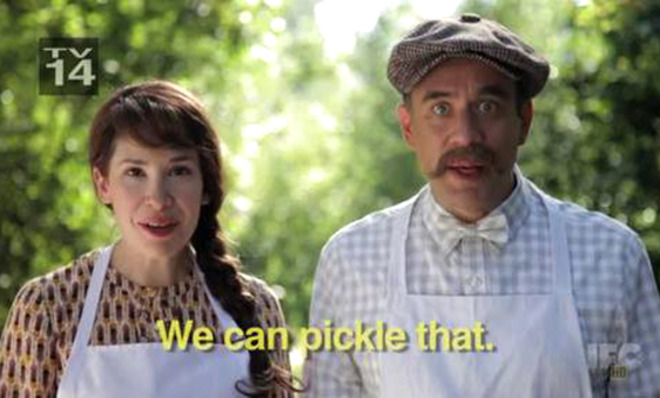

Has any city been more brutally caricatured than Portland? It started in earnest in 2010, with the rightfully celebrated opening salvo from SNL star Fred Armisen and musician-turned-sketch comedian Carrie Brownstein. Their show, Portlandia, has become a hit, but Portland has paid the cost. The depiction of a crunchy, fussy, foodie mecca where "young people go to retire" has stuck, and it's becoming a self-fulfilling prophesy.
Portlandia isn't the only booster of this funhouse-mirror version of Oregon's largest city. The New York Times has published a slew of trend pieces that have done their part to paint the Rose City as a land of boutique hotels, militant bicyclists, micro-roasted coffee perfection, and world-class restaurants.
Like all caricatures, a lot of these things about Portland are true. The dining is great, and many locals do care a lot about where their food comes from. The coffee is abundant and locally roasted, and the scene ever-evolving. (Stumptown? Please. That was so three years ago.) The politics are largely progressive, and lots of people have tattoos and piercings and ride bikes religiously. Portland has the best brick-and-mortar bookstore in the U.S. (Powell's), and more breweries than any city in the world, producing what's rather preciously called "craft beer" that is as good as any on Earth.
The Week
Escape your echo chamber. Get the facts behind the news, plus analysis from multiple perspectives.

Sign up for The Week's Free Newsletters
From our morning news briefing to a weekly Good News Newsletter, get the best of The Week delivered directly to your inbox.
From our morning news briefing to a weekly Good News Newsletter, get the best of The Week delivered directly to your inbox.
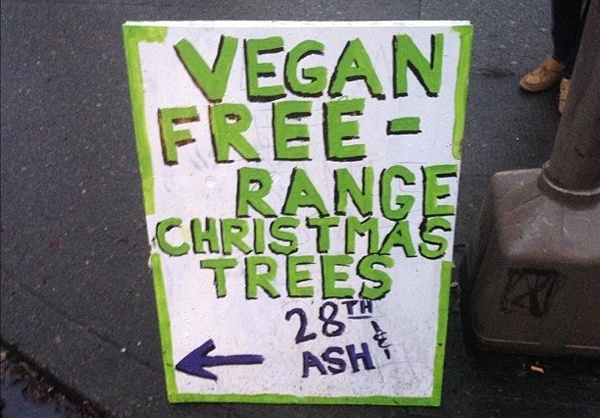
But it is a caricature. When Gawker — in an otherwise interesting crowd-sourced look at the parts of various cities most like Williamsburg, Brooklyn — declared that "the Williamsburg of Portland is Portland," well, that's a bridge too far. (For starters, everyone knows that the Williamsburg of Portland is the Alberta neighborhood.)
The Gawker crowd is right about the Williamsburg-Portland comparison in at least one sense: They both have fairly immutable boundaries. Sure, New York realtors may call Bushwick "East Williamsburg," but happy-talk aside, Williamsburg isn't going to bleed into Greenpoint or Bed-Stuy. Portland isn't really expanding, either, thanks to forward-looking urban growth boundaries Oregon adopted statewide in the 1970s to contain urban sprawl and preserve farmland and nature.
That means, essentially, that Portland can grow up and in, but not outward. If you brave the traffic out to Beaverton (to the west) or Gresham (to the east) or Vancouver, Wash. (to the north), you could be just about anywhere in America, though admittedly with better beer and coffee. Not everybody likes these restrictions (developers, for example), but it does attract a certain kind of person to Portland in an age where urban is cool, exurban is for people who value space, and suburbs are considered filler between the two.
A free daily email with the biggest news stories of the day – and the best features from TheWeek.com
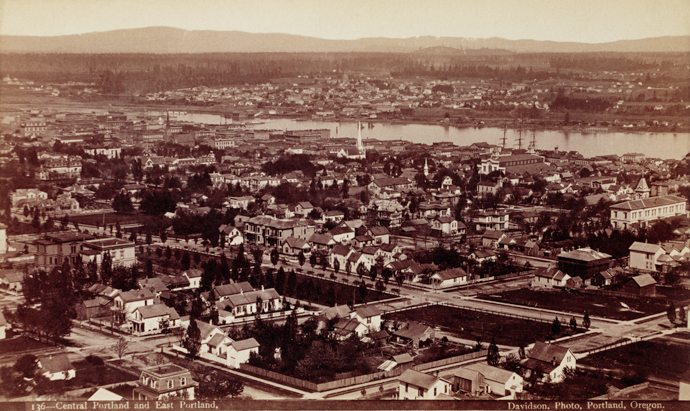
Portland, Ore., circa 1880-1900 (Michael Maslan Historic Photographs/CORBIS)
You Don't Know Portland
Portland is historically a fairly gritty, working-class, timber-and-port town, from the logger and Shanghaied-sailor days of the late 19th and early 20th centuries, to the shipbuilding boom for World War II and its aftermath. That included the postwar organized crime reign of Jim Elkins, replete with gambling dens and brothels. As late as the 1980s, Portland was a low-rent option for fleeing Southern Californians, and still nursed a sizable squalid side.
Now, lots of cities have gotten nicer since the 1980s, but the Portland of today is near unrecognizable — or at least its reputation is. Things started changing in the 1990s. The eight months of damp, cloudy weather hadn't kept out the Californians, and it didn't keep out the young, creative professionals drawn to the comparatively cheap rent of the biggest city between Seattle and San Francisco.
The old seedy taverns along West Burnside were "transformed into hip, trendy places as skid row becomes Old Town, its fortified winos slowly replaced by clearer-eyed, more affluent individuals who 'do lunch' and prefer wines of a gentler vintage," wrote Paul Pintarich, a Portland native and former newspaperman, in his 1996 book History by the Glass, a loving survey of Portland's colorful history of bars and booze.
When the dot-com bubble burst in 2000, not only did many of the 1990s arrivals stay, but Portland — still cheaper to live in than Seattle and San Francisco — attracted refugees from all points on the West Coast and elsewhere in the country. Portland was getting a reputation.
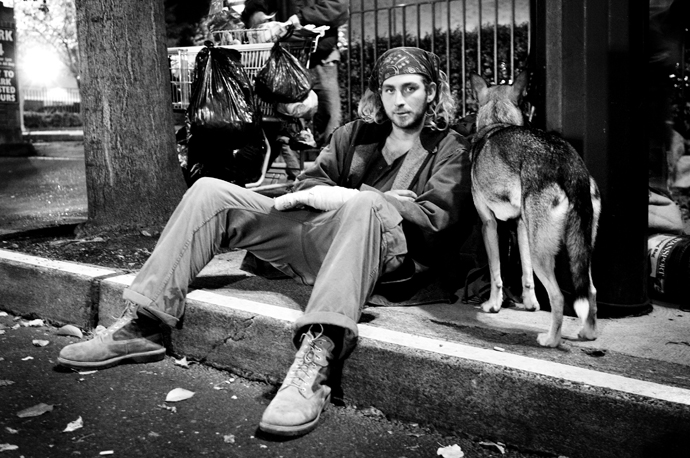
A young homeless man who by 2005 had been living on the Portland streets for three years. (Jonathan Ferrey/Getty Images)
The homeless and drug-addicted were being shooed away from Burnside, the area around Chinatown and the train station had been cleaned up, and the industrial wasteland of warehouses between downtown and the Willamette River ports was being transformed into the gallery-and-condo Pearl District.
But the bums and junkies and wrong type of dive bar were just being pushed out of downtown and the more genteel neighborhoods on the east side of the Willamette River. In addition to Portlandia-type hipsters, locavore foodies, and adult competitive hide-and-seekers, Portland still has its more disreputable quirks: The political progressivism, for example, is mixed with a Bircher element that has rejected fluoridating Portland's drinking water for 60 years running. And then there are the strip clubs.
Thanks to Cory Booker, we all know the city has a Portlandia-worthy vegan strip club. But Portland also has other exotic dance clubs. Lots of them. And many are full nudity. In 2010, both ABC's Nightline and Dan Rather on HDNet ran exposés on "Pornland," shedding a light not just on the strip clubs but, more troublingly, questionable allegations that Portland is a center of the North American teen and tween sex trade. Indeed, Portland's legal sex industry, as measured per capita, beats out Las Vegas's as the largest in the country.
That's as much Portland as twee boutiques and farm-to-table bacon restaurants. But it's not funny. So you won't see it on Portlandia.
Portland Music is More Than M.Ward and The Shins
You may know that progressive Portland had an openly gay mayor (who rather charmingly played the assistant to fake Portlandia mayor Kyle MacLachlan). But Sam Adams was way less colorful than Bud Clark, the Rose City's mayor from 1985 to 1992. Clark, a tavern owner and progressive Republican with no political experience who scored a huge upset over a conservative Democratic incumbent, is probably best known outside of Portland for his appearance in an "Expose Yourself to Art" poster.
The Gen-X crowd fondly remember him as the driving force behind the annual Mayor's Ball.
If a Mayor's Ball sounds stodgy — it wasn't. It was a giant, night-long music festival at Memorial Coliseum (then home court of the Portland Trail Blazers), featuring dozens of rock and blues acts from around the Pacific Northwest.
"There were eight Mayor's Balls, one of which made the Guinness Book of World Records for the most bands under one roof in one night: Eighty-eight bands on eight stages in eight hours," wrote Billy Hults in a first-person account of the concerts' origins. "Billboard Magazine did a major article on the Balls and several bands were scouted and signed for national labels at the Ball."
Portland never really had a cohesive music scene. Try to draw a straight line between The Kingsmen (of "Louie, Louie" fame) and The Decemberists. Pink Martini has little in common with Modest Mouse other than a similar ZIP code. When the Mayor's Ball started, the only bands getting play on national radio were the Dan Reed Network, Nu Shooz, and the Robert Cray Band. A few years earlier, Quarterflash had scored a No. 1 hit with "Harden My Heart." This is Portland Top 40 in the 1980s:
The Dan Reed Network played at the inaugural Mayor's Ball, but by the time I started going, for the last few, Portland was turning out underappreciated bands like the Crazy 8s and the Dharma Bums (probably best remembered now, unjustly, for their unwitting role in bringing together Kurt Cobain and Courtney Love, when Nirvana was opening for the Bums at the Portland club Satyricon in 1989). Portland also had a notable punk scene, including Poison Idea, Napalm Beach, and the Wipers.
Here's a taste of pre-grunge Portland:
When the Seattle grunge scene exploded in the early 1990s — which, broadly defined, encompassed Portlandia's Brownstein and her band, Sleater-Kinney — it sucked all the air out of Portland music for about half a decade.
Sympathy for the Dallasites
At the beginning of this piece, I asked if any city had been so grossly caricatured. The best comparison I have come up with is Dallas. In 2004, during the height of George W. Bush's successful re-election fight, Mimi Swartz looked back at the pros and cons of a city being popularized by an eponymous TV show. When the first Texas president, Lyndon Johnson, left the White House under the dark cloud of the Vietnam War, she wrote in Texas Monthly, lots of the country still blamed Dallas for JFK's assassination. "Texas's reputation didn't recover until oil prices started climbing in the mid-70s," she says:
Then, for what may have been the first time in history, we were indisputably the good guys. The rest of the country needed us to get the oil out of the ground and into their gas tanks. And so we became the superstate, as Newsweek claimed in a 1977 cover story... The apotheosis of Texas chic — as that brief happy period was known — came with the success of Dallas, which aired from 1978 to 1991, reaching more than 300 million people in 90 countries. Dallas was the top-rated show in the country for four years, thanks largely to Larry Hagman's J.R., the audacious, ruthless oilman Hagman modeled on a wildcatter from his hometown of Weatherford. [Texas Monthly]
But Dallas has been trying to get past that era ever since, Swartz continues:
At the end of May, I had coffee with Phillip Jones, the president and CEO of the Dallas Convention and Visitors Bureau... Jones was traveling the globe to promote a re-branded Dallas, another warrior in Texas's eternal battle for the hearts, minds, and dollars of our critics. To Jones, Dallas's image problem had less to do with Bush and more to do with its inability to shake the big-haired image of Dallas. "Dallas has fallen off the radar," Jones told me. He gave me his pitch, listing all the "hip and trendy" new restaurants and shopping venues, the $275 million performing arts center soon to be constructed, the new Nasher Sculpture Center, the cool people who either live in Dallas or once did (Mark Cuban, Norah Jones). "It's an opportunity to tell our story to a new generation of people who don't know who J. R. Ewing is," Jones explained. [Texas Monthly]
The fear with Portland isn't that in 30 years the city's civic leaders will be trying to reach people who've never heard of Fred Armisen, but that Portland will start to believe in the caricature of itself depicted through Portlandia's prism. Think that's not a risk? Here's the latest promotional video from Travel Portland, the pre-eminent city-boosting organization:
This is how Portland should be selling itself, from an earlier Travel Portland campaign:
Beautiful, right? And no hipsters on crazy art bikes.
To be honest, Portland is probably a little pleased at all the attention. It was a genuine surprise to Oregonians when Portland, Maine, became the "other Portland."
But before you decide to move out West, just remember that the weather is lousy for most of the year — and that Portland, for all its charms, is crawling with earnest, compulsively recycling, coffee-obsessed, mustache-twirling, aggressively countercultural liberals.
Peter has worked as a news and culture writer and editor at The Week since the site's launch in 2008. He covers politics, world affairs, religion and cultural currents. His journalism career began as a copy editor at a financial newswire and has included editorial positions at The New York Times Magazine, Facts on File, and Oregon State University.
-
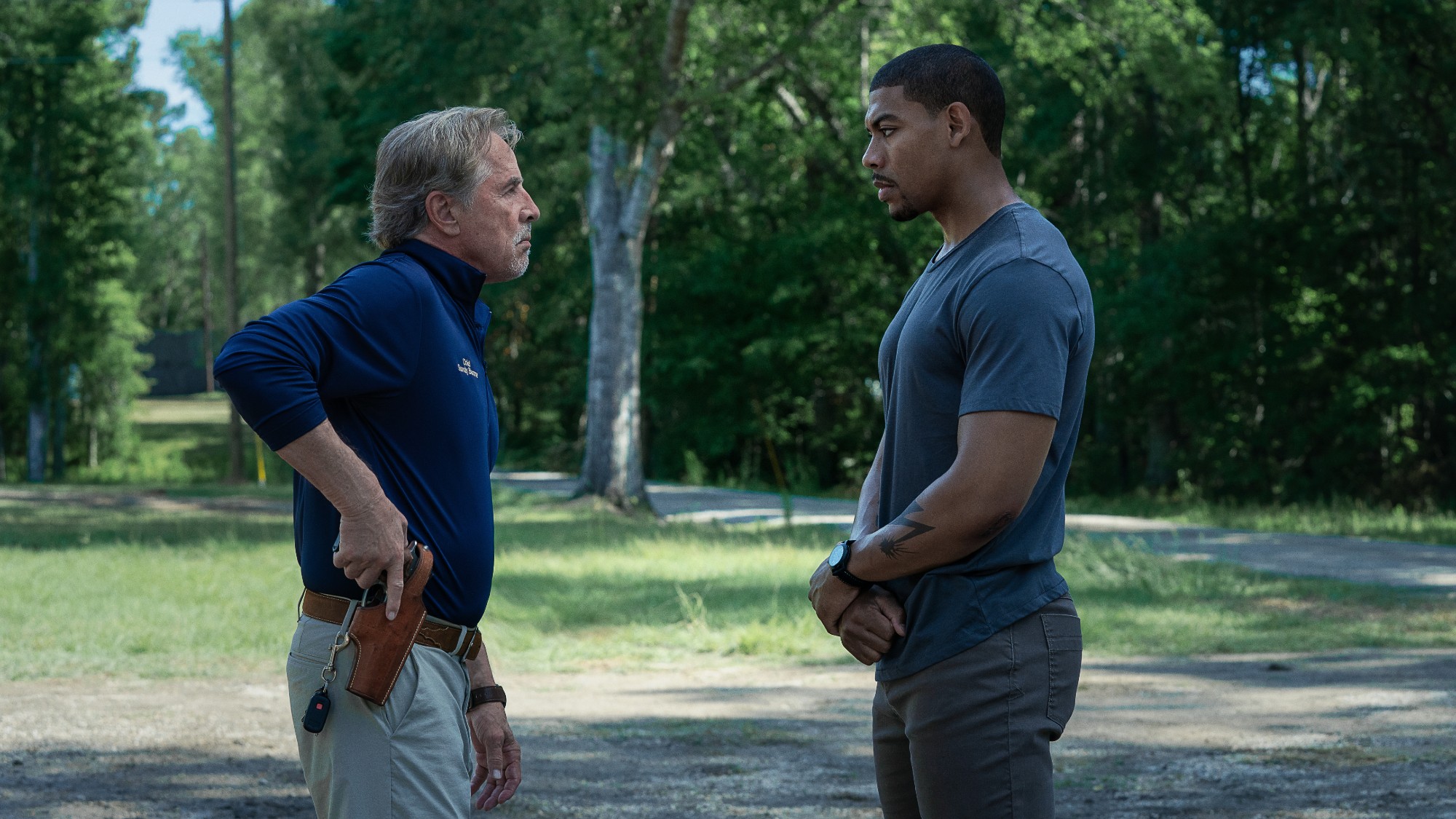 The 8 best action movies of the 21st century
The 8 best action movies of the 21st centurythe week recommends Thrills come in many forms, from assassins and spies to regular people fighting for justice
-
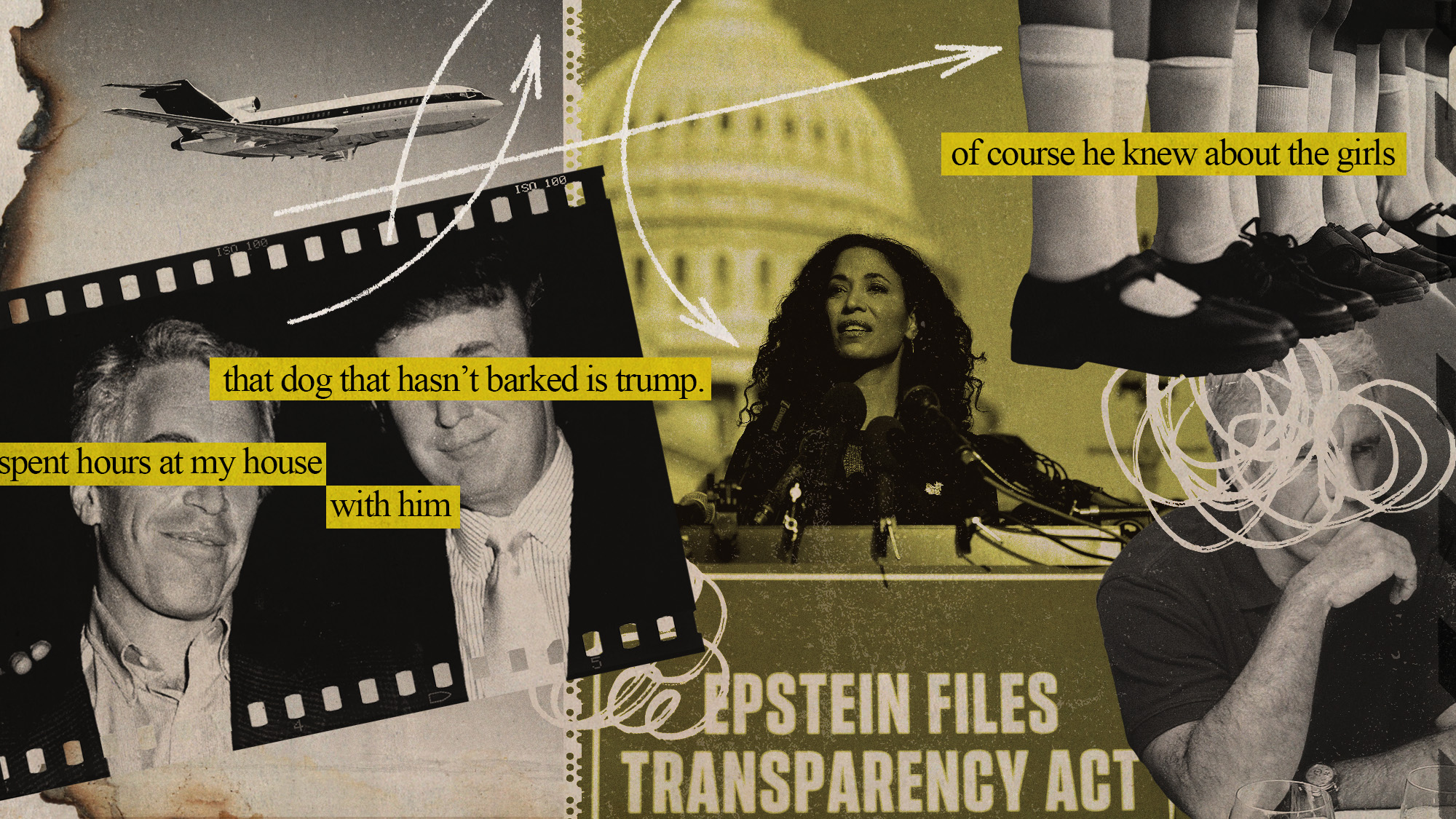 Donald Trump and Jeffrey Epstein: a Timeline
Donald Trump and Jeffrey Epstein: a TimelineIN DEPTH The alleged relationship between deceased sex trafficker Jeffrey Epstein and Donald Trump has become one of the most acute threats to the president’s power
-
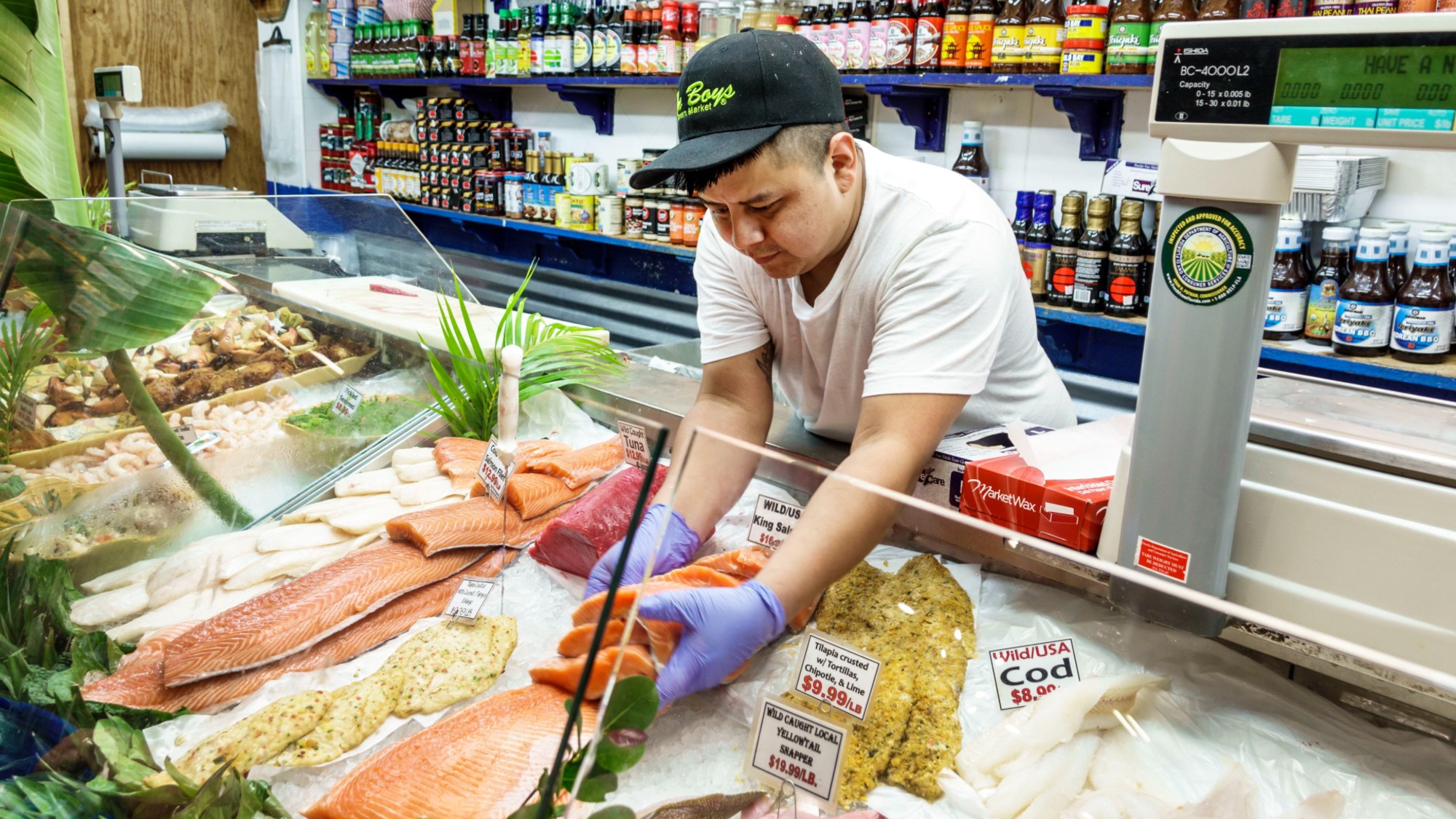 ‘Latinos bring a wealth of knowledge and cultural connection to the ocean’
‘Latinos bring a wealth of knowledge and cultural connection to the ocean’Instant Opinion Opinion, comment and editorials of the day
